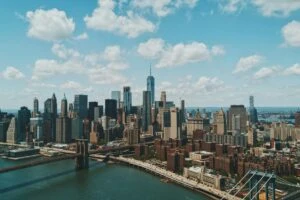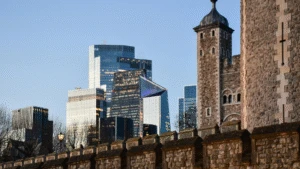Remote work and flexible schedules have become standard practice for many companies, with 89% of organizations now expecting employees to combine business trips with personal vacation time. This shift has given rise to a new travel priority: finding Sustainable Work and Play Destinations that support both professional productivity and environmental responsibility.
This trend toward “bleisure” travel coincides with travelers’ growing environmental awareness—more than three-quarters of people now actively seek low-impact travel options compared to just a year ago. For professionals who want their travel to benefit both their careers and the planet, choosing the right destination means finding places that support productivity while minimizing carbon impact and enriching local communities.
This guide reveals five exceptional destinations where remote workers, digital nomads, and business travelers can seamlessly blend work sessions with authentic cultural experiences. Each location highlights green-certified neighborhoods, sustainable dining options, and eco-friendly transportation networks that align with the growing demand for conscious travel.
What Makes a Destination Perfect for Sustainable Business Travel?
The concept of sustainable tourism encompasses three critical pillars: environmental protection, economic viability for local communities, and socio-cultural authenticity. For business travelers, these principles translate into destinations that offer reliable infrastructure for remote work while preserving the natural and cultural assets that make travel enriching.
Helsinki, Finland recently claimed the top spot in the Global Destination Sustainability Index for 2024, demonstrating how cities can balance tourism growth with environmental stewardship. This Nordic capital exemplifies how sustainable work and play destinations can thrive by implementing comprehensive green policies that benefit both visitors and residents.
The UN World Tourism Organization defines a sustainable destination as one that “takes full account of its current and future economic, social and environmental impacts, addressing the needs of visitors, the industry, the environment and host communities.” The 5 P’s of sustainable tourism—People, Planet, Prosperity, Peace, and Partnerships—create a framework emphasizing community involvement, environmental protection, economic viability, social harmony, and collaborative governance.
Copenhagen Really Deliver Carbon-Neutral Business Travel?
Copenhagen stands as a testament to urban sustainability, ranking third globally in sustainable destination management. The Danish capital has committed to becoming the world’s first carbon-neutral capital by 2025, making it an ideal choice for environmentally conscious business travelers.
The city’s extensive cycling infrastructure includes over 390 kilometers of bike lanes, allowing professionals to commute between meetings while reducing their carbon footprint. Co-working spaces like The Camp operate on 100% renewable energy and feature living walls that improve air quality. For accommodations, the Hotel SP34 holds the Nordic Swan Ecolabel certification and sources 90% of its food locally within 250 kilometers.
Copenhagen’s commitment to sustainability extends to its dining scene. Restaurant Relæ, a Michelin-starred establishment, operates with a zero-waste philosophy, composting all organic matter and sourcing ingredients exclusively from local organic farms. The city’s Torvehallerne food market showcases over 60 vendors committed to organic and locally-sourced products, perfect for grabbing sustainable meals between work sessions.
Why Portland Attracts Green-Minded Remote Workers
Portland has earned recognition as one of the most sustainable cities in North America, with over 90% of its electricity coming from renewable sources. The city’s commitment to environmental stewardship creates an ideal environment for professionals seeking sustainable work and play destinations.
The Pearl District serves as Portland’s green business epicenter, featuring LEED-certified buildings and co-working spaces powered entirely by wind energy. WeWork Pearl offers dedicated phone booths for international calls and high-speed internet, while maintaining strict recycling and composting programs. The nearby Powell’s City of Books provides quiet reading nooks perfect for focused work sessions.
Portland’s food scene emphasizes farm-to-table dining with restaurants like Le Pigeon, which sources 85% of ingredients from farms within 150 miles. The city’s extensive public transportation system, including electric buses and light rail, connects business districts with recreational areas like Forest Park, one of the largest urban forests in the United States.
How Does Reykjavik Power Business Travel with Geothermal Energy?
Iceland’s capital harnesses the country’s abundant geothermal energy to power nearly 100% of its heating and electricity needs, making it a leader among sustainable work and play destinations. The city’s commitment to renewable energy creates an environment where business travelers can work with minimal environmental impact.
Reykjavik’s Harbor District houses several green-certified co-working spaces, including Klak, which utilizes geothermal heating and features floor-to-ceiling windows that maximize natural light. The space offers 24/7 access, essential for professionals managing international time zones, and provides complimentary organic coffee sourced from fair-trade cooperatives.
The city’s compact size makes it easily walkable, while the Strætó public bus system runs on renewable energy. For accommodations, Hotel Borg operates carbon-neutral facilities and partners with local suppliers for 95% of its restaurant ingredients. The nearby Harpa Concert Hall, constructed with sustainable materials and energy-efficient systems, provides inspiring spaces for informal meetings or quiet work sessions.
Where Can Business Travelers Find Urban Wilderness in Vancouver?
Vancouver demonstrates how cities can integrate urban development with natural preservation, earning recognition as one of the world’s most livable cities while maintaining strong environmental standards. The city’s Greenest City Action Plan aims for carbon neutrality by 2050, supported by policies that benefit business travelers seeking sustainable options.
Gastown and Yaletown districts offer numerous LEED-certified office buildings and co-working spaces. The Network Hub operates on 100% renewable energy and features living walls that improve indoor air quality. The space provides high-speed internet, private meeting rooms, and bike storage facilities for professionals who choose cycling over driving.
Vancouver’s commitment to sustainable dining includes restaurants like Vij’s, which sources ingredients from local organic farms and operates a comprehensive waste reduction program. The city’s SkyTrain system runs on hydroelectric power, connecting business districts with recreational areas like Stanley Park, where professionals can enjoy morning runs or evening walks along the seawall.
What Makes Austin a Solar-Powered Innovation Hub?
Austin has emerged as a leader in renewable energy adoption, with the city’s utility company sourcing over 65% of electricity from renewable sources, primarily solar and wind. This commitment to clean energy makes Austin an attractive destination for environmentally conscious business travelers.
The East Austin district has transformed into a hub for sustainable businesses and green co-working spaces. Capital Factory operates on solar power and features a rooftop garden that supplies herbs for its on-site café. The space offers 24/7 access, high-speed internet, and regular networking events that connect remote workers with local entrepreneurs.
Austin’s food scene emphasizes sustainability through restaurants like Odd Duck, which operates a zero-waste kitchen and sources ingredients from local farms within 250 miles. The city’s MetroRail system provides efficient transportation between business districts and recreational areas, while the extensive Austin B-cycle bike-sharing program offers an eco-friendly alternative for short trips.
Choosing Destinations That Support Work, Wellness, and the Planet
The future of business travel lies in choosing destinations that support both professional success and environmental responsibility. These five sustainable work and play destinations demonstrate that travelers no longer need to compromise between productivity and purpose.
Each city offers what modern business travelers need: reliable tech infrastructure, eco-conscious dining, walkable neighborhoods, and green accommodations. By choosing these locations, professionals reduce their footprint while supporting local economies and ecosystems. As more companies recognize the value of blending work and leisure during trips, many are beginning to reflect this shift in their travel policies—incorporating bleisure options as a way to support well-being, retention, and responsible travel choices.Explore Dyme stays across these sustainable cities for low-impact business travel that aligns with your values and professional needs.






